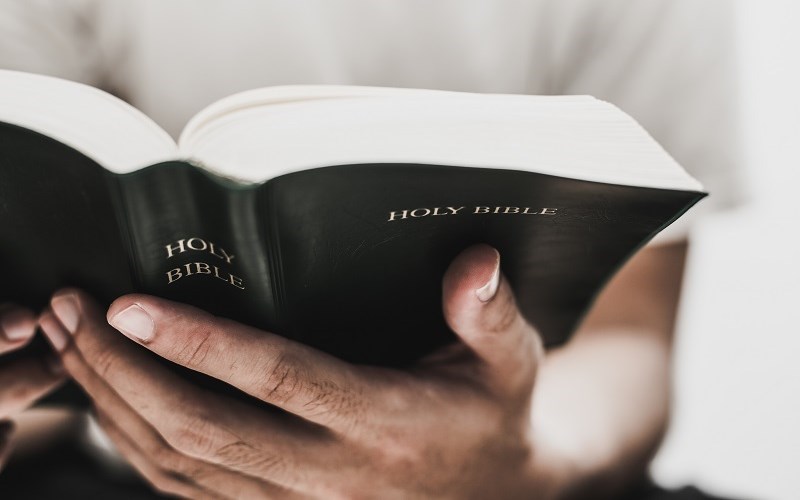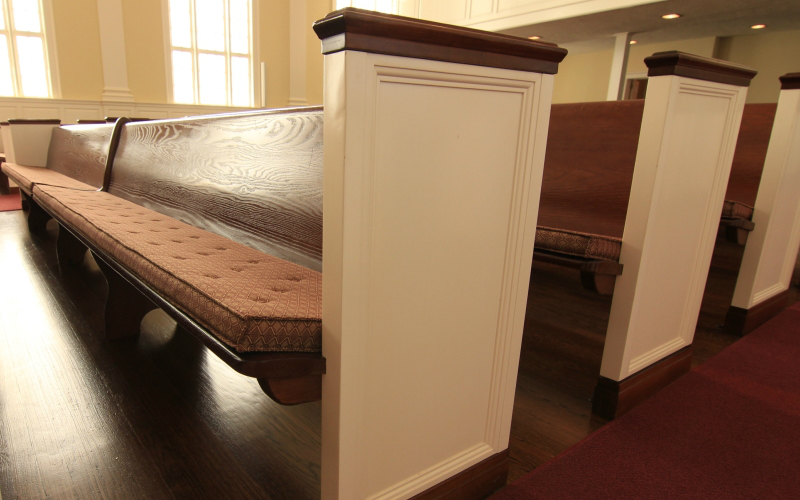Flowers, a former Calvinist, is set to debate that theological topic with Dr. James White, a well-known leader in the Reformed movement, in a March 7 face-off.
The debate is part of the "First Word Debate Series," an ongoing series sponsored by First Lutheran Church in Houston, Texas.
Flowers is currently director of evangelism and apologetics for Texas Baptists. He is also founder of Soteriology 101. That ministry, which is critical of Calvinism, is dedicated to defending what is known as "Provisionism," a more updated description for Arminiaism.
White is an author and director of apologetics ministry Alpha and Omega Ministries.

With nearly 200 debates behind him, White is no stranger to the debate stage and discussing hot-button topics. At First Lutheran, he debated Roman Catholic thinker Trent Horn in back-to-back debates last month.
The debate will be livestreamed at FLHouston.org.
A branch of Protestantism that focuses on the teachings of John Calvin and other preachers of the Reformation Era, Calvinists broke from the Roman Catholic Church in the 1500s, their primary differences centering on Calvin’s beliefs of predestination and election of salvation.
Often the five points of Calvinism are explained with the acronym TULIP: Total Depravity, Unconditional Election, Limited Atonement, Irresistible Grace, Perseverance of the Saints.
Flowers no longer embraces the belief that God offers salvation to some but not all. He and White consider, among other things, John 6:44 when Jesus said, “No one can come to me unless the Father who sent me draws them, and I will raise them up on the last day.”
First Lutheran's description of the March 7 debate says Flowers and White will examine and debate the Book of John, especially that verse.
“John chapter six is not uniquely supporting Calvinistic theology," Flowers recently told American Family Radio. "Though, if you assume Calvinism is true, then it does sound like John 6 teaches Calvinism just like it sounds like Romans 9 is teaching Calvinism if you come in with certain presuppositions already established in your mind."
Flowers calls that "confirmation bias," an accusation White will undoubtedly will push back on later this week.
'I don't believe that's tenable'
One of Flowers’ primary arguments against Calvinism is that the belief that everything happens by God’s decree – without a believer’s free will – necessitates that God has decreed that some believers will wrongly interpret his holy Word.
“He ultimately determines everything, which by necessity would mean that he even decrees for his own children to misinterpret the scripture because if I’m wrong, and I’m misinterpreting John 6:44 on Calvinism, I’m doing that because that’s what God decreed for me to do," Flowers argues. "I don’t believe that’s tenable. I don’t know how you defend that kind of worldview to say that God would decree some of His own children to misinterpret the Bible and other of His children He decrees for them to interpret it rightly."

In a world where Christian views are often misrepresented – such as "Christian nationalists" as an election year talking point – or worse, outright attacked, it’s important that Christians not shrink from debate...even when that debate is internal.
The political climate can make believers prefer safety in numbers and perhaps make them less likely to engage in conversations with the potential to divide them.
“Throughout church history there have been diverging opinions," Flowers pointed out. "Even among Peter and Paul there were diverging opinions, and they would have public discussions about these things."
Flowers dismisses the criticism theological debates are "divisive" and are the reason people leave a church.
"The church used to be the place where you kind of gather at the city gates," he observed. "The politics, the laws and all the things came through by the church. There are some downsides to those kinds of things as well. The point is the church can be the leader in politics, the leader in law, the leader in speaking out."
AFN reached White's Alpha and Omega ministry, which declined to comment for this story.







